First Things First: There is nothing to feel ashamed, discriminated, or petrified if you are trapped in a psychological disorder.
Mental illnesses are rising at an alarming pace all across the globe and are one of the leading causes of ill-health and disability worldwide. In an estimation made by WHO in 2001, a staggering 1 in 4 people worldwide falls prey to poor or lackluster mental health at some point in their life.
Amongst them, on average, 1 in 6 are prescribed some type of psychiatric medication (according to a report published by NBC in 2016). So, if you gravely think about it, you are rather fortunate to be able to access treatment and seek help from a professional.
Nowadays, the two most trending ingredients to treat depression are anti-depressant medications and CBD.
1. Anti-depressants
Anti-depressants are becoming an increasingly popular alternative to curb depression. Even though these medications don’t entirely eradicate the diseases, they remarkably help to reduce the symptoms.
The list of Anti-depressants available can be placed in the following five categories:
1. Selective serotonin reuptake inhibitors (SSRIs)
2. Serotonin and norepinephrine reuptake inhibitors (SNRIs)
3. Atypical anti-depressants
4. Tricyclic anti-depressants (TCAs)
5. Monoamine oxidase inhibitors (MAOIs).
Zoloft (sertraline) belongs to a group of SSRIs and is one of the most commonly prescribed anti-depressants. Therefore, the scope of this article specifically intends to cover the use of Zoloft with CBD.
2. CBD
Cannabidiol, most commonly referred to as CBD, has emerged as the reigning trend of the century with its fans vouching for near-miraculous healing for a broad spectrum of diseases.
The list of medical conditions that CBD can cure is growing by the day with literally no signs of stopping. From relieving chronic pain, alleviating seizures, curbing anxiety, boosting fertility to fighting cancer, it is perceived as a natural and safe supplement to manage all.
It’s also worth mentioning that CBD’s research in the area of curbing anxiety and depressive symptoms have shown particular promise. For instance, a study published in the Frontiers in Immunology Journal, in 2018, revealed that CBD possesses anti-anxiety, antiepileptic, and antipsychotic characteristics that help suppress depression as well as stress.
Curious to know how?
CBD activates our internal Endocannabinoid System, a biological system composed of endocannabinoids and neurotransmitters that bind to cannabinoid receptors in the brain.
These ECS receptors allow cannabis compounds, like CBD, THC, CBN,etc. to interact with the body and vigorously work to improve conditions like inflammation, anxiety, stress, insomnia, and pain.
To combat depression, the ECS System helps produce a neurotransmitter, Anandamide (often referred to as the bliss molecule). Anandamide is the driving force behind establishing homeostasis (to achieve a sense of stability) in our physiological system. Besides, numerous studies have examined the therapeutic potential of ECS for “the development of a novel class of anti-depressants.”
However, at times CBD is found to react with certain medications adversely. In such circumstances, your concerns regarding its efficacy and reactions with anti-depressants are entirely valid.
Once again, Guidance PA is here to help the readers make an informed decision on whether you can use CBD and Zoloft (and other anti-depressants) together. Even though it all boils down to an individual’s choice and preference, it is imperative to be educated.
Zoloft (and Other Anti-Depressants) VS CBD: A Brief Comparison
CBD certainly has the edge over conventional anti-depressants, including Zoloft, when it comes to treating depression and stress. A 2009 research published in The British Journal of Pharmacology has confirmed that ‘CBD induces rapid and sustained antidepressant-like effects in animal models’.
Anti-depressant medications, on the other hand, take weeks to start working. Moreover, unlike CBD, Zoloft, and other anti-depressant drugs carry the risk of insomnia, sexual dysfunction, frustration, mood swings, and agitation.
Drug Interaction between Zoloft (sertraline) and CBD
To date, there is a lack of definite data on CBD’s interaction with other drugs, including SSRIs. Below we have given a highlight of what has been discovered so far:
Our body produces a wide range of enzymes made of proteins. They accelerate chemical reactions inside our system and are responsible for regulating vital body functions like digestion, respiration, and metabolism.
Similarly, liver enzymes are of crucial significance in metabolizing medications, including anti-depressants. Therefore, an increase in CBD usage directly comorbid poor liver functioning as confirmed by a study conducted by Hokuriku University and Kyushu University of Health and Welfare, Japan, in 2011, the findings of which demonstrated that CBD most potently inhibits the activity of liver enzymes.
CBD Oil Review further well explains in words “CBD blocks the cytochrome P450 (a type of liver enzyme) system’s ability to metabolize certain drugs, including SSRIs, resulting in an overall increase in processing times.”
As such, it is safe to conclude that taking CBD supplements in combination with psychiatric medications hypothetically interferes with their absorption by the body and metabolism by the liver. To be more specific, consuming CBD while taking SSRIs diminishes their efficacy. Conversely, SSRIs also negatively impact the potency of CBD.
Side Effects of Using Zoloft with CBD
So far, no significant long-run risks attached to consuming sertraline together with CBD have been identified. In fact, the short-term adverse reaction is also rarely noticed that too, in individuals who are extremely sensitive, prone to allergy, or have a weak immune system. In any case, it’s best to be enlightened beforehand:
In exceptional circumstances, a reaction between the two may trigger perilous after-effects such as fatigue, dizziness, stomach disorders, confusion, weight gain or loss, appetite changes, and attention lapses.
Sometimes, the more aged ones may encounter judgment and thinking impairment as well as movement disco-ordination. One must also prevent the consumption of alcohol while on the two medications and avoid performing strenuous activities or jobs requiring mental alertness such as driving, gyming, accounting, or operating machinery.
As it goes without saying, it is always a better idea to start with small doses and check for any adverse reaction.
Can CBD Replace Zoloft?
Teenagers and middle-agers constitute the fastest growing and largest demographics of CBD consumers. However, there is mostly limited and speculative evidence at the moment (with most of them being based on animal models) that favored using CBD over Zoloft and other anti-depressants.
At the moment, no such study or research has been conducted so far to conclusively establish that CBD can specifically work to replace Zoloft. Therefore, it is clearly not advisable to abruptly stop using your prescribed Zoloft or any other anti-depressant, regardless of how better you feel.
Doing so may lead to severe repercussions like nightmares, vomiting, nausea, headaches, dizziness, itching, or irritability. In worst cases, it can increase the chances of relapse in patients, as confirmed by the National Alliance On Mental Illness (NAMI).
If you really want to switch to CBD, talk to a medical expert first who would help you formulate the best strategy to gradually adjust the doses of both the medications.
Final Words
Cannabidiol, the hot new cannabis compound, is rapidly gaining momentum and being incorporated into every other wellness product.
Even though CBD is widely touted as a safe remedy for a host of other ailments, the unsubstantiated and limited evidence makes it difficult to conclude with certainty on the possible reaction of CBD if consumed with anti-depressants like Zoloft. Regardless, one must never opt for a CBD dosage as a substitute to Zoloft (or vice versa) or discontinue Zoloft without doctor’s consultation.
Peter Grinspoon, in his article, published by the Harvard Health Blog warned that an unchecked and excessive CBD abuse could trigger side effects, such as irritability, nausea, diarrhea, itching, and drowsiness.
In addition, consuming it with blood-thinning drugs like Coumadin can aggravate their impact by increasing the blood flow and raising levels of other prescription medications in the blood.
It is also worth mentioning that one must always be wary of the quality and concentration of CBD incorporated into the product before buying.
Today, a lot of unlicensed, inferior quality, fake and high-THC content products are rampantly being marketed as reported in the Consumer Update, by the U.S. Food and Drug Administration (FDA). Therefore, meticulously selecting a safe and potent CBD product only from a legal dispensary or a reliable e-retailer is recommended.
In any case, the best course of action is to seek advice with your healthcare provider before considering CBD as a treatment option for depression. Discuss all your queries and concerns alongside informing him/her of the list of all your other prescribed medications, including vitamins and herbs.
Disclaimer: The research, regulations, and data surrounding CBD and other related substances are still at a very nascent stage, with new reports being published every year. Therefore, the information in this post should not be construed as medical or legal advice.
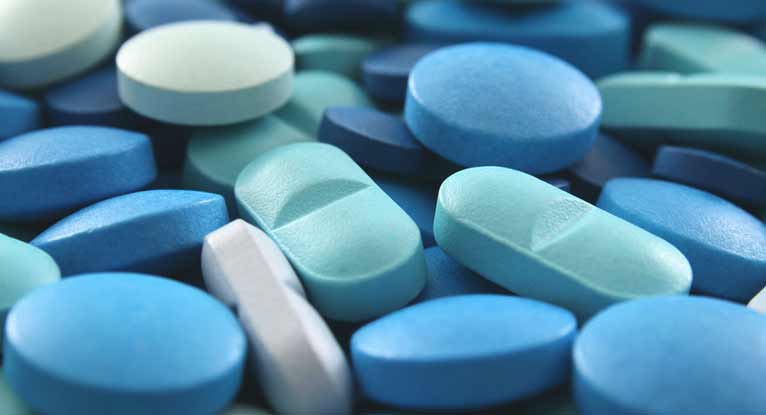


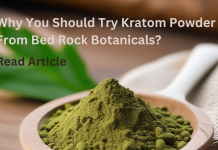

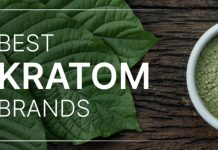

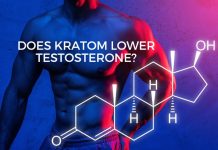
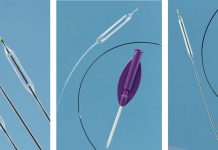

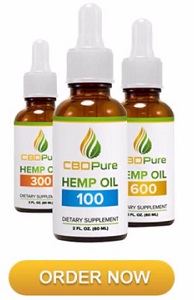
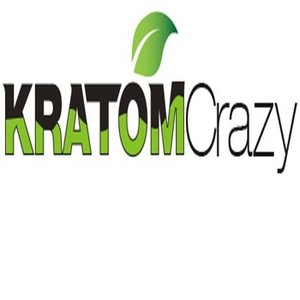





Thanks very beneficial. Will certainly share site with my good friends.